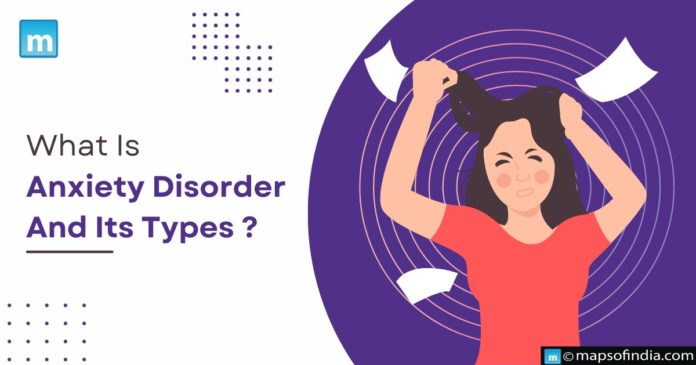What does anxiety disorder mean?
Everyone experiences anxiety occasionally in life. It is a normal reaction to life’s stressful events or challenges. Be it before giving a speech or standing before an audience during a big performance. Tiny nerves are part of these activities.
It isn’t just a part of life for people with anxiety disorders. It essentially impacts every decision and choice they make. People with Anxiety disorder have persistent worries and fear about various situations. It could be a fear of something small or even something they do not have control over.
People with anxiety disorders often also have sudden anxiety attacks where they feel shortness of breath and tightening of the chest. Such attacks are also known as panic attacks. Anxiety disorders differ and depend on a person’s lifestyle, nature, surroundings and specific biological reasons.
Know about the different types of anxiety disorders:
- Generalized anxiety disorder
It is a chronic form of anxiety disorder. Symptoms include excessive and exaggerated worrying and tension about general situations. There can be specific trigger sentences or conditions that could stimulate anxiety, but it is also possibly unprovoked. People with GAD experience symptoms of excessive worrying and anxiety without any particular stressful situation in their life. It can harm a person’s day-to-day life and conversations with others.
- Panic disorder
People who have panic disorder have sudden and intense panic attacks. There are sudden feelings of fear and worry. Symptoms of a panic attack include sweating, chest tightening, suffocation etc. Panic attacks can be triggered by specific triggers such as stressful situations or even words about a person’s insecurity. Panic attacks can harm a person’s mental health and social stance.
- Social anxiety disorder
Social anxiety disorder is a form of anxiety disorder in which a person feels overwhelming self-consciousness and insecurity about themselves. As a result, it affects their conversations and ability to create new friends. Social anxiety disorder causes tension in everyday situations like going to the gym, giving a presentation, or even attending a party can become challenging and stressful. People with social anxiety disorder are primarily shy and introverted, and these natural qualities play a role in handling your social conversations. Such people have a problem taking formal or informal discussions, eating in front of others, or feeling uncomfortable near other humans.
Post-traumatic stress disorder
A traumatic experience in the past triggers PTSD. It can be a childhood experience or, more recently. Depending on how severely traumatizing the experience was, people have different reactions and problems. Traumatic experiences can be triggered; for example, a bad experience with flying on an aeroplane can lead to a lifelong fear of it. Likewise, a victim of assault might have problems with physical contact or boundaries.
No matter what form of anxiety disorder you may suffer from, treatment is available and necessary for you to lead a healthier life. Contact a medical professional for prescribed medication. You can choose therapy instead of medication. It helps communicate and find closure over your worries and anxieties. Talking about your stress can help you see it better and find better coping mechanisms.




